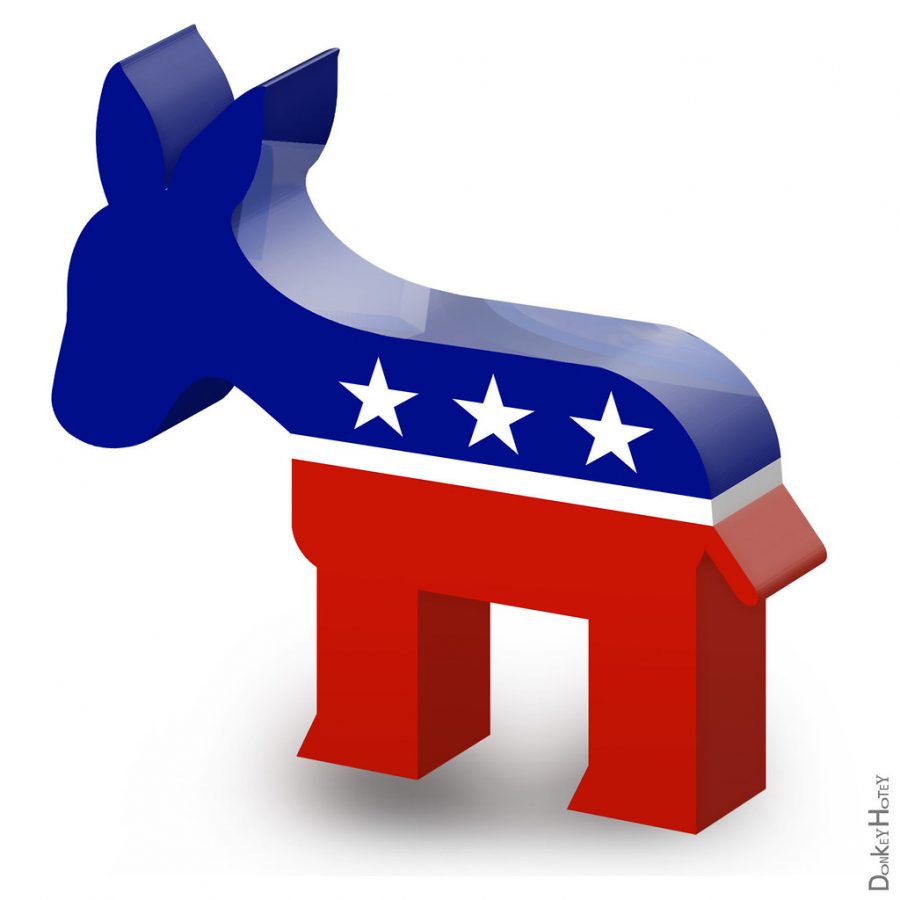One last chance before Iowa
The seventh democratic debate
Photo Flickr
On Jan. 14, CNN hosted the seventh Democratic debate. It was the smallest yet, with only six candidates onstage — Senator Elizabeth Warren, Senator Bernie Sanders, Senator Amy Klobuchar, Former Vice President Joe Biden, Former Mayor of South Bend, IN Pete Buttigieg, and billionaire Tom Steyer. Like the previous six debates, it highlighted the tensions between progressives and moderates within the Democratic party. They discussed the same key issues as usual: foreign policy, the economy, climate change, healthcare, and impeachment.
Why does this debate matter?
It was the last debate before the Iowa caucuses on Feb. 3. Iowa is the first state to vote in the primary (though it uses informal gatherings and public voting rather than the traditional system), and it is therefore considered the most important. The outcome of the Iowa caucuses often determines how much funding candidates have, and it was a turning point in the past for underdog candidates like Barack Obama. In most cases, the winner of the Iowa caucus won their party’s nomination. With all of this at stake, the debate gave candidates one last chance to tell voters where they stand on key issues.
Where do the candidates stand?
“Allies” was the buzzword of the first hour. Everybody agreed that no matter what policy actions we take, we have to take them with the support of our allies. Nobody wanted to go to war with Iran, but Klobuchar and Buttigieg promised that they would use the Iran Nuclear Deal, or a similar agreement, to prevent Iran from getting a nuclear weapon. Everybody agreed that war in Afghanistan and Iraq were a mistake and that Congress should have more control over military actions taken by the president. Warren promised to bring troops out of the Middle East. Other people, like Klobuchar, agreed with the sentiment, but said they would leave some troops to help transition and preserve the progress that has been made in the War on Terror.
On the economy, they discussed the United States-Mexico-Canada Agreement (better known as the new NAFTA), President Trump’s new trade agreement with Mexico and Canada. Warren said it was a “modest improvement,” so she supports it, but Sanders said it does not do enough to counter the influence of large corporations. Klobuchar and Biden said that controlling trade agreements like this are a necessary alternative to the trade war with China because they use multilateral cooperation to help the United States control international markets. Everybody was worried about how the wealth created from this will be distributed to farmers and other people outside of the corporate world.
For Sanders and Warren, this involves making public colleges and universities completely free. Klobuchar and Steyer agreed that education is an important way to counter inequality but think more money needs to be put into K-12 education to have a bigger impact and equip people to do the jobs that are open right now.
With any Democratic discussion of income inequality comes the healthcare debate. Sanders and Warren advocate for a “Medicare for All” system, in which everybody uses government provided health insurance. Moderates have continuously criticized the plan as too expensive and too radical, and Sanders’s rough cost estimate and Warren’s plan to pay for it left people skeptical. The other candidates want to expand ObamaCare but keep private health insurance as an option. Klobuchar pointed out that a “Medicare for All” system is unlikely to ever pass Congress and suggested discussion of smaller steps that could be taken, like reducing the cost of prescription drugs.
The debate ended with climate change, which everybody agreed was bad and needed to be addressed for the sake of future generations. Steyer has made climate change his “number one priority” since he joined the race. Buttigieg pointed out that we need to manage the symptoms of climate change by helping people in areas with a high chance of flooding move, and at the same time, we need to work on broader change. Everybody else talked about the importance of renewable energy, but nobody seemed to have a concrete plan to tackle climate change.
Scattered in the substance were more political issues. Candidates discussed impeachment and its potential impacts on the general election. The newer scandal was Warren’s allegation from earlier in the week that Sanders had told her a woman could not win the presidency. Warren got applause for talking about how she and Klobuchar were the only people on the stage who had won every election they had been in. Sanders denied making the statement, pointed out that it was clearly false, given that Hillary Clinton won the popular vote in 2016, and pivoted back to his talking points.
What happens next?
The candidates will focus on trying to win Iowa, but Sanders and Biden are in the lead. The caucus will not be limited to the six candidates in the debate. Entrepreneur Andrew Yang, Senator Michael Bennet, Representative Tulsi Gabbard, Representative John Delaney, and Former Governor of Massachusetts Deval Patrick will all be options for Iowa voters, even though they did not have enough support to qualify for the debate. Former New York City Mayor Michael Bloomberg, who recently entered the race, will not be an option for Iowa caucuses but is still involved in the Democratic primary.
There is still time before the caucuses, but this was the last time the major candidates were together discussing the issues before the voting happens. The senators in the race will have to return to Washington, DC to vote in the impeachment trial, reducing their campaign time. So while candidates will keep working to win, the decision is mostly in the hands of the Iowan people right now.

